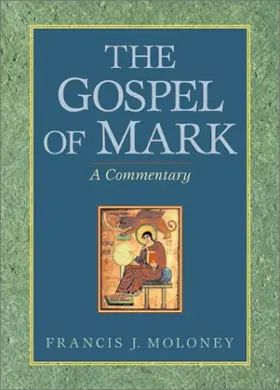

The Gospel of Mark: A Commentary
Pages
398
Publisher
Hendrickson
Published
2002
ISBN-13
9781565636828
The Gospel of Mark, addressed to an early Christian community perplexed by failure and suffering, presents Jesus as suffering Messiah and Son of God. Recognizing that failure and suffering continue to perplex Christians, Francis Moloney marries the rich contributions of traditional historical scholarship with the contemporary approach to the gospels as narrative to bring the Gospel's story to life for readers today.
Collections
This book appears in the following featured collections.
- Commentaries by Roman Catholic Scholars by John Dyer
Reviews
This commentary is an absolute steal for the price. Moloney has written a fabulous commentary on Mark. He is a Catholic scholar who has spent a lot of time studying the Gospels (especially John). This commentary is not overly technical, but the Greek text is certainly discussed at points. This commentary is strongest on the literary study of the narrative and drawing out theology from this study.
[Full Review]
Francis J. Moloney, Professor of New Testament and Katherine Drexel Chair of Religious Studies at the Catholic University of America in Washington, D.C., has—among many other books—already published a major commentary on John (vol. 1: Belief in the Word: Reading John 1–4; vol. 2: Signs and Shadows: Reading John 5–12; vol. 3: Glory not Dishonor: Reading John 13–20 (21) [Minneapolis: Fortress, 1993–98]). But recently he has turned his interest to the “Cinderella of the New Testament” (10), the Gospel of Mark (see also his latest study, Mark: Storyteller, Interpreter, Evangelist [Peabody, Mass.: Hendrickson, 2004], and my corresponding review in RBL). In Moloney’s view, Mark’s Gospel developed from the traditional “Second Gospel” (2) to the first Gospel not only historically on account of the insights of source criticism but also in terms of research interests. This trend is not least reflected by the wealth of commentaries published only during the past years (e.g., Evans, Guelich, Gundry, Hooker, LaVerdiere, Lührmann, Marcus, Painter, van Iersel). Yet Moloney does not add “just another volume” to this bulk but rather follows a new avenue with his very readable one-volume commentary on Mark. That has to be maintained with regard to the method as well as the theological implications of this stimulating commentary, which can be recommended to students and preachers as well as to scholars.
[Full Review]

